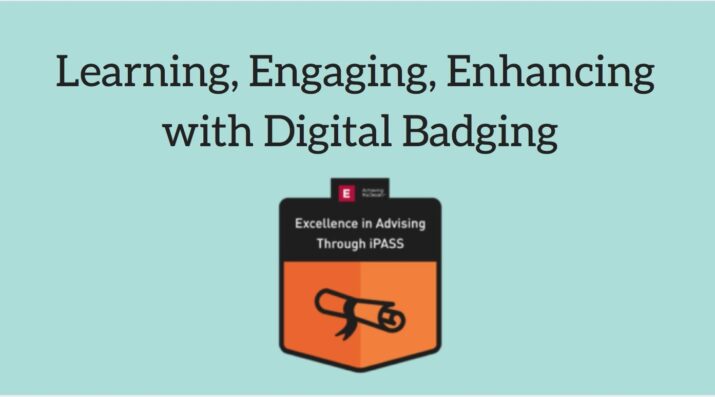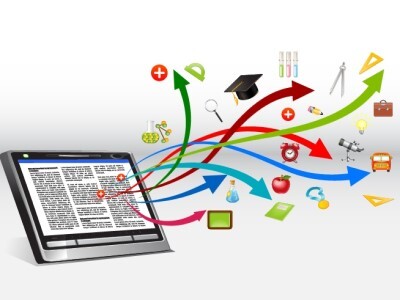Learning, Engaging, Enhancing with Digital Badging
Topics

Educators increasingly rely on education technology tools as they shift instruction, redefine teacher roles, and design learning experiences that reflect how students actually learn. Technology should never lead the design of learning. But when used intentionally, it can personalize instruction, enrich learning environments, and help students master critical skills.
Motivating busy higher education professionals to learn and engage with one another isn’t always an easy task. As a partner in a high impact grant program, our team at Achieving the Dream sought to change that.
Motivating busy higher education professionals to learn and engage with one another isn’t always an easy task; there are plenty of logistical hurdles, and often, little recognition of one’s efforts in an initiative. As a partner in a high impact grant program, our team at Achieving the Dream sought to change that.
Learning
The Integrated Advising and Planning for Student Success or ‘iPASS’ grant has been funded by the Bill & Melinda Gates Foundation; it supports the transformation of advising and student services in higher ed through the redesign of structures, processes, and technologies. To date, this work is ongoing in 26 grantee institutions across the country. The focus is on more than the implementation and use of new and innovative technology, however.
While the implementation of all new platforms and systems is a significant factor, it's only a piece of a much larger redesign effort; the redesign work promotes campus-wide collaboration and improved relationship building with students--with achieving greater equity, and higher completion rates as the main goals. The people/process part of redesign is naturally the most challenging, so we felt a sense of urgency to provide grantees with more content focused on advising practices and policies–beyond data collection and tech use. We also recognize the benefit of peer learning, although it can be difficult with busy campus schedules for peers to connect across institutions.
Therefore, in addition to offering new and relevant content, it was also equally important for us to provide our grantees with a space and opportunity for sharing and collaboration. We created and delivered our Series on Excellence in Advising through iPASS as a semi self-paced online course to ensure the broadest access possible to all grantees.
Engaging
The series was made up of six topics presented through pre-recorded webinars along with corresponding pre-readings, and also involved live virtual collaboration sessions, discussion board engagement, and the completion of a reflection and action planning worksheet. Participants were asked to spend at least one hour per week with series content and engagement, and to meet a minimum of once a month together virtually.
We also wanted these professionals to have something meaningful to show for their efforts. By offering an EDUCAUSE digital badge to participants, we were able to recognize their time and engagement and formalize the intended outcomes of the series. The badging opportunity also boosted engagement, participation, and perseverance throughout our series, which in turn increased the meaning and value of our series content and components. We were able to offer participants tangible recognition for fully taking part in our series, truly engaging, and seeing it through to the end.
Enhancing
Digital badging is a great opportunity for those looking to gain new skills, particularly related to their career development and goals. In fact, this topic came up during our discussion of series material. Advisors sought to know how they could receive professional development and be recognized or potentially promoted for their skills and expertise. This speaks to the value of digital badging opportunities.
The badge motivated participants to learn and engage despite their busy schedules and workloads, as well as to showcase what they have learned and the expertise and knowledge they gained in a meaningful way. For many of our participants in the series, this was an opportunity to deeply engage and reflect on content related to topics such as Engaging Professional Staff and Faculty Advisors in Advising Reform, Strategies for Moving from Transactional to Holistic Advising, and Strategies for Evaluating Advising Reform. In addition, badging requirements such as collaboration sessions and discussion board engagement gave institutions time to share and learn across teams.
The series and badging have both proven to be beneficial. Evaluation feedback showed that badging recipients benefited from the topics presented and were inspired by the opportunity to engage with others from peer institutions. Half of participants who responded to our survey indicated that the series exceeded or far exceeded their expectations. Furthermore, the series also worked to help digital badging recipients engage in continued conversations on and across campuses in order to drive important changes to advising policy and practice.
In a field focused on so many innovation and redesign topics, the creation and use of more digital badging opportunities that bring content to practitioners and enable them to share with each other will be critical for institutions’ success.




